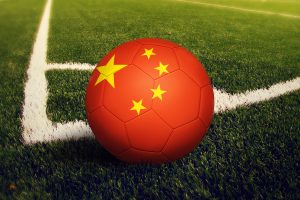Chinese President Xi Jinping is reported to be a big soccer fan, and he promised in a 2015 document to resuscitate the men’s national team, damaged by abysmal results on the global stage and widespread corruption in local leagues.
He cannot be happy.
Japan defeated China 7-0 on Thursday in a World Cup qualifier in Saitama, Japan, a brutal loss that came against one of China’s biggest sports and geopolitical rivals in Asia. It was China’s most lopsided loss against Japan, and a historic loss in World Cup qualifying.
China’s national team coach Branko Ivankovic of Croatia called it a “most difficult night,” as quoted in English by the official Xinhua news agency, which termed the loss “humiliating.”
Wataru Endo and Kaoru Mitoma scored in the first half on a night of Asian World Cup qualifiers. Takumi Minamino scored twice in the second half with others from Daizen Maeda, Junya Ito and Takefusa Kubo.
“It was a tough match,” Xinhua quoted Ivankovic as saying. “And as a coach, this was the most difficult night for me.”
Reaction in China was muted on state media. The China Sports Daily had a very short story titled: “China lost to Japan in World Cup qualifier” with few details.
But there was more discussion on Chinese social media.
Zhang Feng, a journalist and commentator with a popular blog, was direct.
“Football cannot be boosted by singing odes, or telling stories,” he wrote. “It needs skill, and physical and tactical training. It cannot be accomplished through politics.”
Tang Yinghong. a prolific writer with a large following, suggested football is not a good fit for China, which won 40 gold medals in the recent Paris Olympics to tie the United States. Some were in sports like diving and others that do not have a large global following.
“In my opinion, let’s just let football develop on its own,” Tang wrote. “Leaders should not place high hopes on the sport, and the government needn’t give it a lot of care.”
China almost didn’t advance to the current round of World Cup qualifying. It barely slipped past Thailand, which would have needed only one more goal in its final match against Singapore to take the second-place slot in their group.
China has nine more qualifying matches remaining, and still has a shot at reaching the expanded, 48-team World Cup in 2026, hosted by the United States, Mexico, and Canada. But even with the larger and weakened field, China still might not make it.
China is currently in last place in the six-team group. Once group play is completed, the top two teams will automatically qualify; the third- and fourth-place teams will move into a fourth round to attempt to secure a spot. With goal differential serving as a crucial tie-break between teams with the same overall record, China’s 0-7 hole after the first match puts it in an especially difficult position.
China has qualified only once for the World Cup. It lost all three matches in 2002 and failed to score a goal.
China is No. 87 in the most recent FIFA rankings for men’s teams, just below the Caribbean island of Curaçao (population 150,000), and just above the African nation of Equatorial Guinea (1.7 million). China’s population is about 1.4 billion.

































